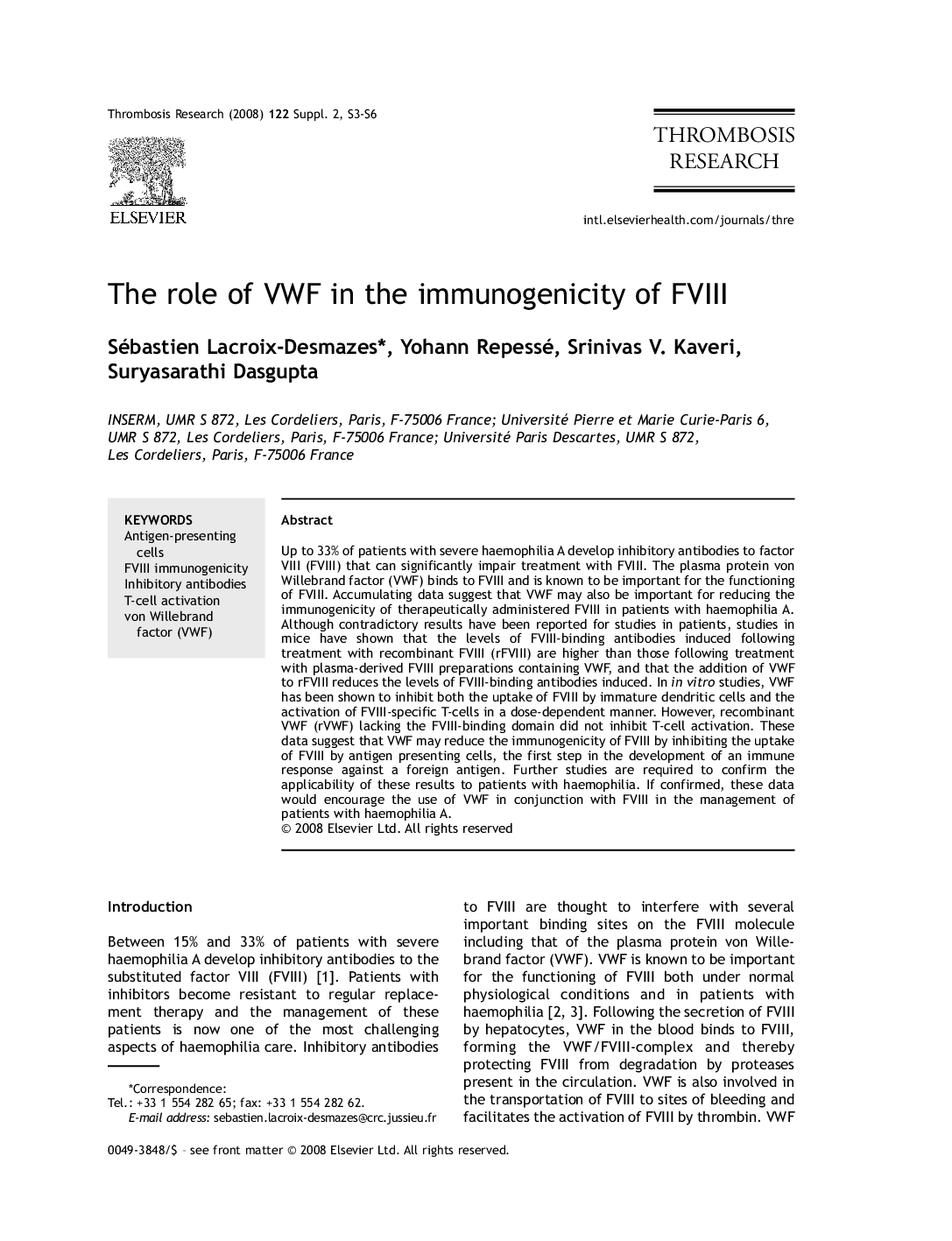| Article ID | Journal | Published Year | Pages | File Type |
|---|---|---|---|---|
| 3029928 | Thrombosis Research | 2008 | 4 Pages |
Up to 33% of patients with severe haemophilia A develop inhibitory antibodies to factor VIM (FVIII) that can significantly impair treatment with FVIII. The plasma protein von Willebrand factor (VWF) binds to FVIII and is known to be important for the functioning of FVIII. Accumulating data suggest that VWF may also be important for reducing the immunogenicity of therapeutically administered FVIII in patients with haemophilia A. Although contradictory results have been reported for studies in patients, studies in mice have shown that the levels of FVIII-binding antibodies induced following treatment with recombinant FVIII (rFVIII) are higher than those following treatment with plasma-derived FVIII preparations containing VWF, and that the addition of VWF to rFVIII reduces the levels of FVIII-binding antibodies induced. In in vitro studies, VWF has been shown to inhibit both the uptake of FVIII by immature dendritic cells and the activation of FVIII-specificT-cells in a dose-dependent manner. However, recombinant VWF (rVWF) lacking the FVIII-binding domain did not inhibit T-cell activation. These data suggest that VWF may reduce the immunogenicity of FVIII by inhibiting the uptake of FVIII by antigen presenting cells, the first step in the development of an immune response against a foreign antigen. Further studies are required to confirm the applicability of these results to patients with haemophilia. If confirmed, these data would encourage the use of VWF in conjunction with FVIII in the management of patients with haemophilia A.
